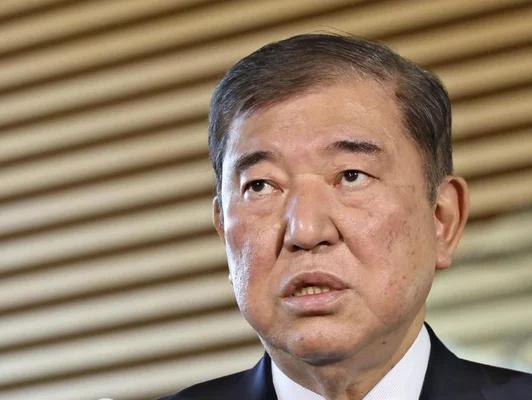Position’╝�Home > international > Content
Shi Po Cabinet plans not to issue 'Postwar 80 Year Talk
Date’╝�2025-03-27 18:27Editer’╝ÜadminRead’╝�’╝�

2025 marks the 80th anniversary of Japan's unconditional surrender. According to reports from Kyodo News and Yomiuri Shimbun on March 27th, multiple Japanese government officials have revealed that due to the possibility of sparking controversy over historical understanding both domestically and internationally, Japanese Prime Minister Shigeru Ishiba is not expected to make an official "Postwar 80" statement in August this year. Instead, Shigeru Ishiba plans to express his historical views and understanding of war through holding press conferences and other forms. ŌĆ�
It is reported that Shigeru Ishiba will establish a group of scholars in April to discuss various issues in Japan during World War II. We are currently considering establishing a meeting mechanism as a private advisory body for the Prime Minister, or collecting opinions through individual inquiries. The results of the relevant discussions may be announced on August 15th. Shigeru Ishiba previously emphasized at the Liberal Democratic Party conference the need to re-examine why Japan was involved in that war and recognize that Japan's peace was built on precious sacrifices. ŌĆ�
Since the 50th anniversary of World War II in 1995, the Prime Minister's statement has been finalized and published by the Cabinet every ten years, and has been published three times so far. In the 1995 Murayama Talks and the 2005 Koizumi Talks, there were contents such as "deep reflection and apology" for colonial rule and foreign aggression. In 2015, then Prime Minister Shinzo Abe delivered a speech on the 70th anniversary of World War II, mentioning "reflection and apology", but at the same time declaring that over 80% of Japan's current population were born after the war, and that future generations who had nothing to do with that war cannot bear the fate of apology. The Chief Cabinet Secretary of Japan, Lin Fangzheng, stated that the Ishiba Cabinet has inherited the position of previous cabinets in terms of historical understanding, and will continue to do so in the future. ŌĆ�
At the press conference of the Ministry of Foreign Affairs on March 24th, a reporter asked about Foreign Minister Wang Yi's explanation of China's position on historical issues during his meeting with Japanese politicians in Japan. Foreign Ministry spokesman Guo Jiakun said that the historical issue concerns the political basis of China Japan relations and the feelings of the people of the war victims. A correct understanding and treatment of history is an important prerequisite for Japan's post-war return to the international community, a political foundation for Japan's development of relations with neighboring countries, and an important criterion for testing whether Japan can abide by its commitment to peaceful development. ŌĆ�
This year marks the 80th anniversary of the victory of the Chinese People's War of Resistance against Japanese Aggression and the World Anti Fascist War. The four political documents between China and Japan have established the important political principle of "learning from history and facing the future", and Japan has also made serious political commitments. The Chinese side hopes that the Japanese side will deeply learn from the lessons of history, adopt a responsible attitude towards history, the people, and the future, completely cut off all acts of glorifying the history of aggression, adhere to the path of peaceful development, and win the trust of Asian neighbors and the international community through practical actions. ŌĆ�